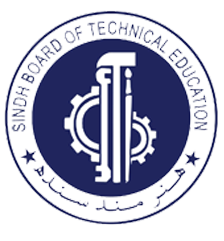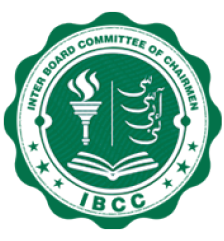
Greenwich Global College, mandated by the Sindh Technical Board and Inter Board Committee Chairmen (IBCC), designed two years diploma in Textile and Fashion Design with a focus on craftsmanship that leads to the equivalency of NVQF Level 5 / Intermediate.
A textile and fashion design diploma prepares students to create designs and patterns for surfaces made of artificial natural fibres.
Diploma students will be able to learn textile techniques, printmaking, sewing, embroidery, pattern making, and design development. The unique diploma targets students who want to pursue fashion and textiles. The diploma is designed according to market demand and will fill the education industry’s central gap.



| Term | Code | Course Title |
|---|---|---|
| 01 | GFP106IT | Introduction to Textile |
| 01 | GFP105HAC | History of Art and Culture |
| 01 | GFP103FD | Fundamental Design |
| 01 | GFP104IF | Introduction to Fashion |
| 02 | GFP101EN | English |
| 02 | GFP202UR | Urdu/Native Language |
| 02 | GFP102IS | Islamic Studies |
| 02 | GGPR4202 | National Studies & Religious Education |
| 03 | GFP107BD | Basic Drawing |
| 03 | GFP207FI | Fashion Illustration |
| 03 | GFP204DFP | Digital Fashion Pro |
| 04 | GFP206PA | Pattern |
| 04 | GGIP9001 | Internship |
| 04 | GFP205SW | Sewing |
1. Present facts in a systematic and logical manner.
2. To meet the language day-to-day demands.
3. Inculcate skills of reading, writing and comprehension.
1. Classify Elements and Principles of Art.
2. Making models with 2D and 3D material.
3. Creating artwork with the understanding of practices from previous eras.
1. Make a design for apparel & home furnish.
2. Explain how to create different basic designs.
3. Find color combinations with fabric structures, yarn materials and quality.
4. Classify the application of design, development of strategy and implementation of new technologies relative to design development, material choices, and the manufacture and distribution of fashion.
5. Develop the difference between the research board, mood board, and product board and learn how to create them.
1. Demonstrate the ability to evaluate visual information and compare diverse perspectives.
2. Conduct market surveys, workshops and visits to enhance their exposure and relation to the commercial field.
3. Apply fundamental craft skills to complement traditional and modern techniques and implement comprehensive textile repeated creation and development of motif.
4. Design skills to design textiles through demonstrating basic skills in drawing, lay-outing, repeat creation, and color application.
1. Classify concept of pillars of Islam.
2. Contextualize Salah and importance of ablution(Wadu).
3. Develop a concept of importance of Holy book and basic concepts of Islam.
1. Present facts in a systematic and logical manner in Urdu language.
2. Meet the Urdu language day-to-day demands.
3. Inculcate skills of reading, writing and comprehension in Urdu.
1. Critically evaluate the various dynamics and processes related to the study of History.
2. Gain familiarity with key primary sources and academic studies on different aspects of South Asian history in general, and Pakistan in particular.
3. Critically read and analyze texts on history.
4. Develop an ability to challenge meta-narratives of history.
1. Classify cultural and aesthetic prehistorical, culture, art, and innovations in pottery, color palettes, sculptures, region, religion, weather etc.
2. Contextualize design within the broader framework of historical, political, and cultural shifts.
3. Analyze texts (verbal, written, visual etc.)
4. Discover and expand on analytical and lateral thinking techniques.
5. Evaluate research skills and presentation skills and develop teamwork skills.
6. Create designs by using historical facts and driving innovations from different Eras.
1. Find theoretical and practical principles, emerging trends, and issues pertinent to textile design and related industries.
2. Relate structured research; analyze cultural and aesthetic trends, both historical and contemporary, on drawing and sketching.
3. Classify the concept of drawing and study its implementations in the field.
4. Apply fundamental craft skills to complement traditional and modern techniques and the ability to apply comprehensive drawing and sketching techniques.
1. Find basic information design, software, and essential tools of the software.
2. Conduct structured research; analyze cultural and aesthetic trends, both historical and contemporary, on textile surface design products and use the information to develop creative design concepts.
3. Think focus, including the ability to evaluate visual information, compare diverse perspectives, come to fundamental conclusions, and interpret information to produce original designs for appropriate textile markets.
1. Demonstrate basic knowledge and handling of sewing machines.
2. Techniques of creating and sewing different manipulated fabrics.
3. Demonstration of variation of skirt, bodice, pockets, and dresses.
4. Discovering different types of finishing.
1. Basic knowledge of pattern making.
2. Know how to customize a pattern on any measurement.
3. Create facings and lining. Separating the design and making it ready to cut.
| Description | Currency | Amount |
|---|---|---|
| Application Fee | PKR | 2000 |
| Admission Fee (One Time) | PKR | 50000 |
| Security Deposit (One Time, Refundable) | PKR | 20000 |
| Term Fee | PKR | 100000 |
| Board of Technical Education Registration Fee | PKR | 21000 |
| Following Fee are charged where applicable: | ||
| * Duplicate Identification Card Fee | PKR | 1500 |
| * Rechecking of Examination Fee | PKR | 500 |
| * Late Payment Surcharge | PKR | 5000 |
| * Marksheet Issuance Fee | PKR | 2000 |
| * Diploma Issuance Fee | PKR | 2000 |
| Important Note: 1. No payment will be accepted at any institute. 2. All payments are to be made in person at the bank or online payment methods via GGC Website. 3. All invoices must be cleared on time, students with outstanding dues will not be allowed to attend classes. 4. Fee structure is subject to change before beginning of the academic year. 5. Fee are non-refundable and non-transferable. 6. Fee paid on monthly basis will have additional charge of 10% on the invoice amount. 7. Fee above 200,000PKR is subjected to 5% Advance Tax u/s 236 or Income Tax Ordinance. | ||
GGC provides knowledge and confidence students need to embark on their study abroad journey by familiarizing them with academic standards of the international education system; offering students advanced placement opportunities at top international universities.
© Copyright Greenwich Global College 2024. All Rights Reserved
The photographs / Videos used in the website are of Greenwich Global College’s Students, Faculty and Management.